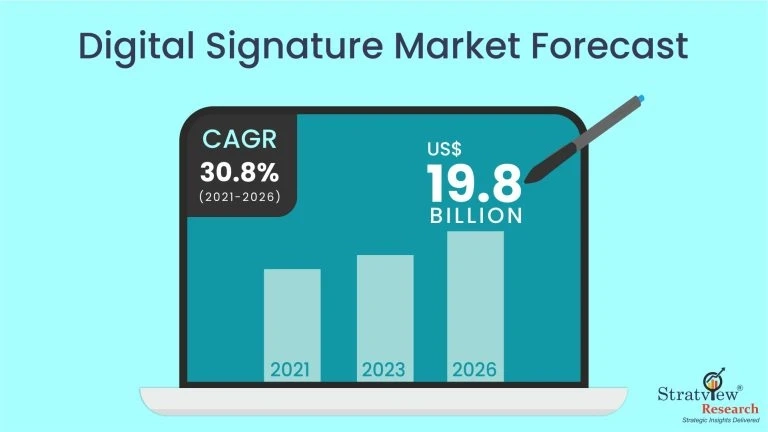Digital Signature Market, by Components Type (Solutions, Service), Deployment Mode (Cloud, On-premises) Organization Size Type (SMEs, Large Enterprises) Vertical Type (BFSI, Government and Defense, Healthcare and Life Sciences, Legal, Real Estate, Education, Other), and Region (North America, Europe, Asia-Pacific, and the Rest of the World).
The Future of Authentication: Trends in the Digital Signature Market for 2024
The digital signature market is poised for significant advancements in 2024, driven by the increasing need for secure, efficient, and legally compliant authentication methods. Here are the top trends shaping the future of digital signatures:
Blockchain Integration: Blockchain technology is set to revolutionize digital signatures by enhancing security and transparency. By leveraging decentralized ledgers, digital signatures can become virtually tamper-proof, ensuring the authenticity and integrity of documents.AI and Machine Learning: Artificial intelligence and machine learning are being integrated into digital signature platforms to improve fraud detection and streamline verification processes. These technologies can analyze patterns and detect anomalies, reducing the risk of unauthorized signatures.Biometric Authentication: Combining digital signatures with biometric data, such as fingerprints or facial recognition, is becoming more common. This multi-factor authentication approach enhances security and provides an additional layer of verification, making digital signatures more robust.Cloud-Based Solutions: The shift towards cloud-based digital signature solutions is accelerating. Cloud platforms offer scalability, ease of access, and seamless integration with other enterprise systems, making digital signatures more accessible and user-friendly for businesses of all sizes.Regulatory Compliance: As digital transactions become more prevalent, regulatory bodies are establishing clearer guidelines for digital signatures. In 2024, we can expect stricter compliance requirements and the adoption of international standards, ensuring the legal validity of digital signatures across different jurisdictions.In summary, the digital signature market in 2024 will be characterized by enhanced security through blockchain and AI, the integration of biometric authentication, the rise of cloud-based solutions, and a focus on regulatory compliance. These trends are set to transform digital authentication, making it more secure, efficient, and universally accepted.


